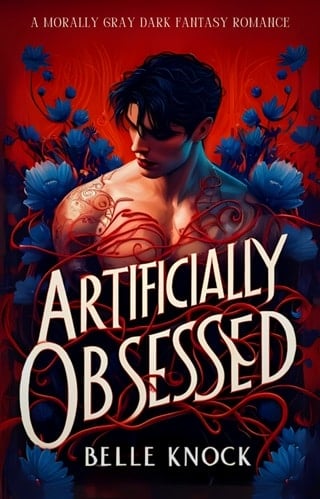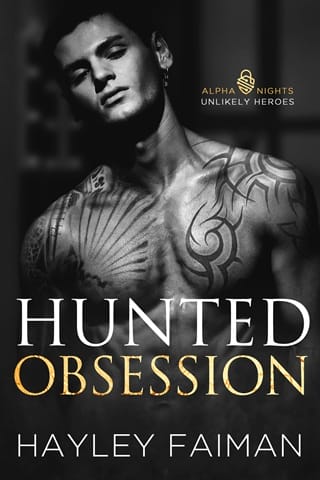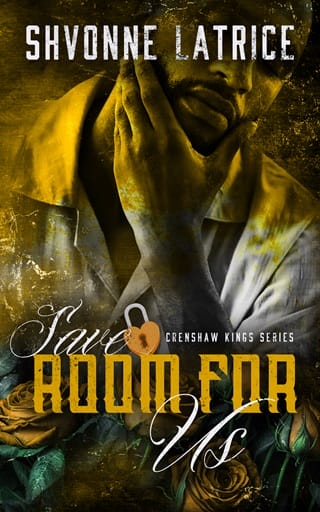18. Eva
"The children are in school," Barbie laughs, "Have you ever heard of school?"
What. A. Condescending. Twit. I don't dignify her with an answer, but Theo does, "Yeah, we've heard of schools, just there wasn't a proper one in our village. Rich kids got taught how to read by the priest. Poor kids had to help on the farm. I know how to read, though. Eva does too. So, do all the kids here go to school?"
Barbie sighs, as if she just got asked the dumbest question in the world.
"Maybe you can just point us to someone who does want to show us around? Clearly, you have better things to do," I say.
"No, no, it"s fine," she sighs again, "I better take you on a tram so you can see what I'm talking about, instead of just hearing about it. Have either of you ever seen the ocean?"
We shake our heads.
"Yeah, we'll like, go to the ocean, but first I have to drop off my berries." She grins, showing off perfect pearl teeth. "I'm going to make so. Much. Pie!" and for a second I forget my dislike of her.
We follow her into one of the plant-covered buildings to find a massive, shining kitchen, humming with people cooking and with an undercurrent of buzzing sounds I suspect is magtech. The place is as bright inside as the sun shines outside—and the light seems to be pouring from white glass orbs on the ceiling, seeming like lanterns without flames. The Magus's manor was full of similar orbs. I should fear any sign of magtech, but maybe because of the familiarity, or maybe because of the overwhelming, mouth-watering smell of baking bread, I feel safe here.
Barbie puts the berries on a table and announces, "I'm making pie later, don't touch my berries!" to the room. She doesn't turn to make sure Theo and I are following as she exits out the way we came. I notice that none of the men and women bustling around turn to look at her. Maybe, despite her beauty, she is not popular. No wonder, I snort.
"Okay, so like because you guys can't ride bikes, we'll take the tram that's normally reserved for emergencies and shipping."
Theo and I shoot each other a look. Shipping?
We follow Barbie to an odd, red metallic carriage parked beside the building—a detail I had previously overlooked amid the surrounding oddities. She unhooks a metallic rope anchoring it to the ground, opens the rear door, and instructs us to enter. With some hesitation, we climb inside. Barbie then takes the seat in front of us.
"Seat Belts!" Barbie announces.
I stare at her, "What?"
She sighs, "Never mind. I don't want to, like, get caught up in the details. We can worry about things like seatbelts later."
"I think she's talking about these, Eva," I turn to see Theo holding onto what indeed looks like belts attached to seats—but then we are being jarred with movement as the carriage jolts forward—without a horse—it must be magtech. I clutch onto the seat belt with both fists squeezed tight.
"Woah!" says Theo, his face lit with delight.
Eva whips her head around and gives him a grin, "Fun, isn't it?"
Although I want to feel skeptical and fearful, I find myself sharing Theo"s exhilaration from the carriage"s smooth, tram-like motion. Through the windows, I see buildings and people passing by as swiftly as if we were riding a galloping horse, yet without any of the jarring up-and-down movement.
"How—" Theo says.
"Just wait, okay? I'll explain when we get to the ocean. I can't wait to see the looks on your faces."
"Why—" Theo says.
Barbie snaps, "Just wait, Okay?!"
The scenery outside the window is consistently lush: buildings draped in greenery, now noticeably laden with sprouting fruit. The observatory appears briefly, drawing near before being obscured by other structures.
Barbie points out a majestic building that comes into view. "A library," she says. I crane my head to admire it before it is lost to the scenery.
We descend a gentle slope. Suddenly, as if crossing an unseen boundary, we emerge from the urban area into fields dotted with farmers tending to their vegetables. The air here is light, bright, and cool. I take a deep breath. Despite my exhaustion, the refreshing air tempts me to relax, yet my eyes remain wide, eager to take in everything. The landscape is both unfamiliar and oddly familiar, as if recalled from a dream.
We are passing through a field of mildly grazing sheep when Theo shouts, "The ocean!"
I see it, brilliant in the distance, shining like a jewel, beneath the sun hung high overhead. Like an endless lake, stretching out into forever, only unlike a lake, the water is alive: crashing in waves on the shore, moving without being moved, as if by magtech. It reminds me of the silent, uniform blue of the flowers in the cryometery, and yet it is the most wondrous thing I have ever seen. It is also terrifying. We have reached the ends of the Earth.
Standing like sentries in the water are tall white windmills and soaring overhead in ever-changing formations are white and gray seabirds, as large as eagles, calling to each other with voices that sound like a mix between a duck and an eagle. They're strange and wondrous. I wonder what they are called, and if they are indeed a cross between ducks and eagles, and I wonder why there are windmills in the water, but I hold my tongue. I'd feel like I were giving in if I showed Barbie how this place is affecting me.
In the distance, the wall of sarcophagus pods extends past the city, past the farmland, and into the ocean. I can't let myself forget that this is a city literally surrounded by death.
Barbie's long blonde hair whips around in the sea breeze, but it doesn"t get tangled. If I still had my hair, it would be everywhere. She does something that stops the carriage short on the road. "I think this is near enough," she says.
"What—" begins Theo.
Barbie shoots him a glare that shuts him up. I wish I could shut him up with a glare. "Before you ask, the plants covering the walls in the city are our gardens and help feed Esseff, the farmland around does the rest, the roofs look the way they do because they are solar panels that collect energy from the sun for our magtech, as do the wind generators in the ocean, which also work to filter our water from the sea, and yes the contraptions in the kitchen are run by magtech. We call our magtechal devices ‘magines.'
"Now before you go asking any more questions, I guess the first thing you guys need to know about Esseff is that we operate on a system of need-to-know or NTK for short. Scientia potentia est: Knowledge is power: Power is dangerous. Power corrupts. We keep magtech from getting out of hand by preventing any one person from having too much knowledge of it.
"We're like, a beehive or, like, an anthill. We all have our jobs, and we all need each other, but we are all highly specialized. If we are a nurse bee, we don't have much knowledge of what the worker bee does, or the farmer bee. The wizard is the only one who knows everything and is like our queen bee, keeping it all together."
"How—"
"Just let me finish, before you ask any questions. Okaaayy?" She rolls her eyes again, and I am starting to think maybe her eye-rolling is actually some kind of twitch, "So, like, we are all specialized worker bees working under the queen bee. And like... I lost my train of thought... Um right, so because everyone has only a piece of the puzzle, no one can leave Esseff and take magtech with them. They only know one ingredient in the potion, and without the rest of the ingredients, it is impossible for them to re-create magtech for their own evil purposes. Are you guys starting to get it?" She does a brilliant little hair flip that makes me want to scream. How can anyone's hair be so damn perfect?
"I get it," Theo nods happily, "That's brilliant."
"But why?" I ask.
Barbie stares at me as if I am an idiot.
"I mean," I pause, trying to think of how to word my question, "Why have magtech at all if it can be so evil? And if magtech is so good, why restrict it?"
"You don't get it," Barbie sighs. "magtech is not evil. magtech is not good. It is what you make of it. And people, individually, almost uniformly, use magtech for evil. For death and destruction, for war. Give one person more power than other people and will they share it? No, they'll use it to get the upper hand on other people. Humans are by nature self-serving. That's why we share everything here in Esseff. What is good for one is good for all. That way humans can continue to be self-serving but know that what is good for their neighbor is also good for them."
"That seems like it would be very difficult to enforce," I argue.
Barbie rolls her eyes. "Okay?" she says.
"But what if someone does break the rules or something?" asks Theo, who was born thinking rules are made to be broken.
"It is like, basically impossible to break the rules, because, like, there is no incentive to break rules. We don't have crime. We have equality. I mean, if you want to know about exceptions. Our society is pretty much perfect. Everyone has a purpose and is working towards their purpose and the greater good."
I don't know why I so want to tear down this girl's ideas about her so-called perfect society. I feel like she must be delusional. Nothing is perfect. And I don't like how she seems so smart and so stupid all at once. I can't trust a person made of such opposites. "What about your wizard?" I ask, "If he is so knowledgeable and powerful, how is he not corrupt?"
She flashes a smile at me that is all innocence and perfect, straight white teeth, perfect pale pink gums, "Good question. Our wizard is what we call a philosopher king. He is our king because he does not want power. He doesn't even want to be king, but he does want the common good."
"But if he didn't want to be king, then how did he end up being the king?" I ask.
Barbie speaks slowly, emphasizing each word as if she is speaking to an idiot, "Because—he—is—the—best—choice." She flips her hair over her shoulder as if she just won the argument.
What kind of man could be so damn perfect? I imagine he is old, bald, and stooped, with a white beard longer than Barbie's hair, and gnarly old hands, fingers covered in rhinestones. I imagine the kind of old man with color leached from his eyes, who has forgotten how to laugh because he's seen too much of the world's sorrows. An old sad man... or perhaps a Magi. My stomach tightens.
"The whole system sounds great, but also pretty fragile," Theo points out, "What if one division comes down with the plague or the king dies or something?"
Barbie bites her full lower lip before answering, "Well the truth is, it is pretty fragile. That's why every one person is so important. We have a very delicate balance. Here, let me show you guys something that may make it clearer than I can."
Barbie adjusts the controls, and we start rolling back the way we came, returning to the city. However, this route only brings the observatory closer, until we are right in a town square in front of it. The building is even more magnificent up close—huge, with spires, columns, and decorative engravings, and the observatory dome itself in the middle as the centerpiece. It is much bigger than the Magus's manor. I wonder how many people live in it, or, like the manor, it is full of empty rooms.
"See that? That is our symbol."
Barbie points out a granite sculpture positioned in the center of a grassy square, encircled by vibrant gardens and flanked by fountains that shimmer with sprays of water. More accurately described, it consists of six individual sculptures—alternating figures of men and women, each leaning back against one another in a continuous loop, supporting each other. It's evident that removing any one of these figures would cause the entire structure to collapse. The statues are rendered with astonishing realism, showcasing some of the finest craftsmanship I have ever seen (and thanks to the Magus, I have witnessed exceptional artistry). However, the absence of faces on the figures adds an eerie and captivating effect. Despite the unsettling feeling, I find myself unable to look away.
"Un pour tous, tous pour un: All for one, and one for all. Esseff is fragile," Barbie says. "If one division falls, then we all do. We have fallen six times in the past due to human greed. We haven"t fallen in a long, long time, but we may fall again yet. But each time we fall, we rise again, better than we were in the past. One day our society will truly reach perfection, and when that day comes, we will spread outward to encompass the entire human race, so we can all live in harmony with each other and nature."
I'm about to ask her to tell us more about the falls, when Theo, being Theo, says, "But why are the statues naked?"
Barbie shrugs, "Why wouldn't they be?"
Theo opens his mouth, then shuts it.
Then Barbie adds slowly, as if in an afterthought, "N-T-K: Need. To. Know. You're encouraged to ask as many questions as you'd like, but you won't always get the answers you seek. So," says Barbie. "Now that you understand a bit more about how Esseff works, do you want to stay?"
I say no and Theo says yes.
Yes, I've got to admit, it all sounds amazing. But I don"t like this place. I don't like this girl. It is all too bizarre, and being around so much magtech gives me a bad feeling. And while there are many distractions, I cannot forget that we are in a city surrounded by a wall of corpses. I have to remind myself of that again and again. Such a thing is undeniably a bad omen.
We eat in a large dining hall near the kitchen we had first visited. Barbie calls the dining hall the ‘cafeteria.' The food is a soup that is too delicious after so long spent traveling. We talk more about Esseff, how it works, if we should stay, if we would be welcome (Barbie lets us know that they don't just accept everyone who visits as citizens.) With a moment to rest, I think about Patty, and I worry about Blacky. Did a dragon get him too? I try not to think about the Magus. I'm grateful the day has been too eventful to give me much time to think.
The sun is setting when Barbie leads us to a tall building sprouting over with orange fruits and green leaves, The Orange Dorm, she calls it. I have agreed to stay, for now. But only because we have no other viable choices. Theo is ecstatic, grinning his face off. He kept trying to cheer me up, but nothing can distract me from the unease I feel.
In the hallway, young men and women greet Theo and me with smiles. Barbie leads me to a room directly across from Theo"s. Both rooms are simple and identical, each furnished with a single bed covered in a white quilt and pillows, a dresser, a table, a chair, and a window. There is no lantern, but there is a device Barbie refers to as a "light," which automatically turns off at nine o"clock to prevent light pollution. I"m not sure what she means by that, but I nod as if I do. Theo doesn"t question her further. Before leaving, Barbie promises to return in the morning with pie for breakfast and to assist us in receiving our division assignments. Her kindness makes me think she may not be so bad after all, given that she has devoted most of her day to helping us. However, I find myself wondering how she had so much free time in a city where everyone is supposed to be busy with their jobs.
"Just wait, you'll see that everything will work itself out," Theo whispers in my ear before giving me a single, soft, kiss on the lips. Theo's kiss breaks a dam open inside me. I smile at him, then hurry to my room, to my bed, where I let the dam that that kiss broke flood my pillow with tears. Quietly, as quietly as I can, I cry.
I dream.
I am twelve years old, and he is our maid's son. My parents gave Sofia permission to bring him with her to work because he needed a quiet place to study—and their home is loud, full of the sounds of his older cousins with their friends on the phone and his younger siblings and cousins playing. I wonder what it would be like to live in such a loud place, full of family. Here in my parent's home, it is only me and Sofia. Sofia, our latest live-in, is kind to me, but I maintain my distance from the help, as my mother has said is proper. I don't need a babysitter anymore; I tell my mother. Your brothers will need one, my mother tells me. She is huge, ripe, but still, she goes to work and leaves me at home. I can babysit him myself, I say, but no one hears my words but me.
And he, the maid's son, is laughing at me from behind his book.
He is quiet, but he is always laughing at me. His eyes are beautiful blue, and they dance with mirth as he watches me—I think he is watching me, but I can't be sure.
I find excuses to be in the sitting room with him. I study harder, I read a book. I try to show off by setting up my paints and painting a fabulous picture—but every stroke looks wrong, and he is laughing at me.
"Your painting is wrong," he says.
"Then show me how to do it right."
He doesn't answer. I know he thinks I am a rich girl, spoiled with anything I want. I want to prove him wrong though I know he is right. His eyes are beautiful, and the shape of his lips make me want to move my lips to match.
I try on makeup, but I don't wear it in front of the boys at my private school. I sit next to him and ask him a question about my homework, even though I already know the answer. I am smart, I want him to know I am smart, but I can only think to act dumb.
"Sorry," he says, with unapologetic blue eyes, "I don't have time to teach you. I need to study. Why don't you ask your parents to hire a tutor?"
I find out that he wants to be a doctor. And now I want to be a doctor too.
He is still laughing at me the first time we kiss. He is still laughing at me the first time we fuck. But he isn't laughing on our first day of college, our first time as students together. I gaze at his handsome young face with its first shadows of stubble, while he gazes straight ahead. He will be a doctor one day, I know. He will be the greatest doctor that ever lived. He will accomplish his dreams, and I will be a doctor beside him, we will get married and have children, and our children will have beautiful blue laughing eyes too.
I wake up with salty tears drying on my face and the idea that I've lost something, that I've forgotten something.
 Fullepub
Fullepub 



